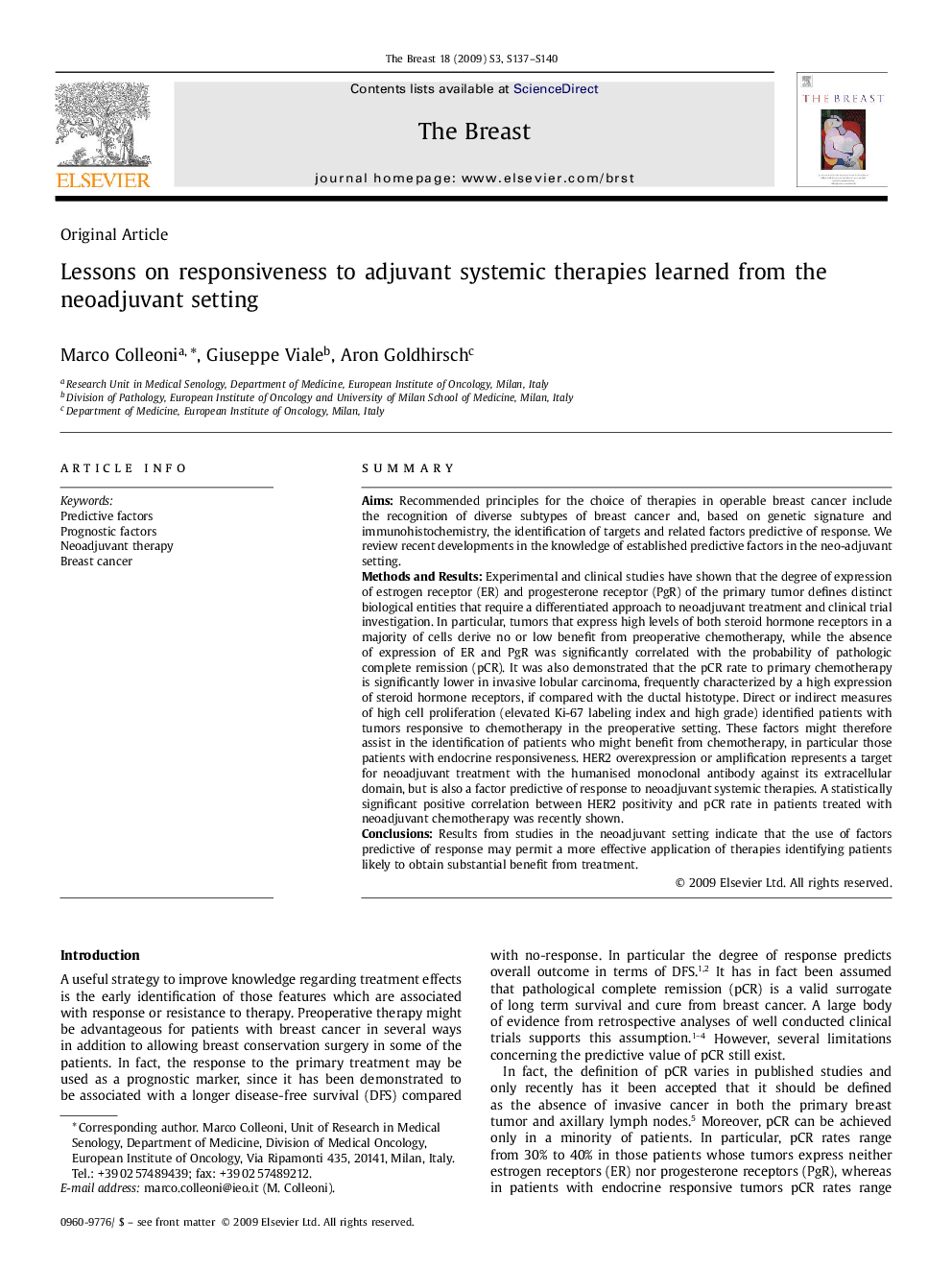| کد مقاله | کد نشریه | سال انتشار | مقاله انگلیسی | نسخه تمام متن |
|---|---|---|---|---|
| 3909458 | 1251217 | 2009 | 4 صفحه PDF | دانلود رایگان |

SummaryAimsRecommended principles for the choice of therapies in operable breast cancer include the recognition of diverse subtypes of breast cancer and, based on genetic signature and immunohistochemistry, the identification of targets and related factors predictive of response. We review recent developments in the knowledge of established predictive factors in the neo-adjuvant setting.Methods and ResultsExperimental and clinical studies have shown that the degree of expression of estrogen receptor (ER) and progesterone receptor (PgR) of the primary tumor defines distinct biological entities that require a differentiated approach to neoadjuvant treatment and clinical trial investigation. In particular, tumors that express high levels of both steroid hormone receptors in a majority of cells derive no or low benefit from preoperative chemotherapy, while the absence of expression of ER and PgR was significantly correlated with the probability of pathologic complete remission (pCR). It was also demonstrated that the pCR rate to primary chemotherapy is significantly lower in invasive lobular carcinoma, frequently characterized by a high expression of steroid hormone receptors, if compared with the ductal histotype. Direct or indirect measures of high cell proliferation (elevated Ki-67 labeling index and high grade) identified patients with tumors responsive to chemotherapy in the preoperative setting. These factors might therefore assist in the identification of patients who might benefit from chemotherapy, in particular those patients with endocrine responsiveness. HER2 overexpression or amplification represents a target for neoadjuvant treatment with the humanised monoclonal antibody against its extracellular domain, but is also a factor predictive of response to neoadjuvant systemic therapies. A statistically significant positive correlation between HER2 positivity and pCR rate in patients treated with neoadjuvant chemotherapy was recently shown.ConclusionsResults from studies in the neoadjuvant setting indicate that the use of factors predictive of response may permit a more effective application of therapies identifying patients likely to obtain substantial benefit from treatment.
Journal: The Breast - Volume 18, Supplement 3, October 2009, Pages S137–S140